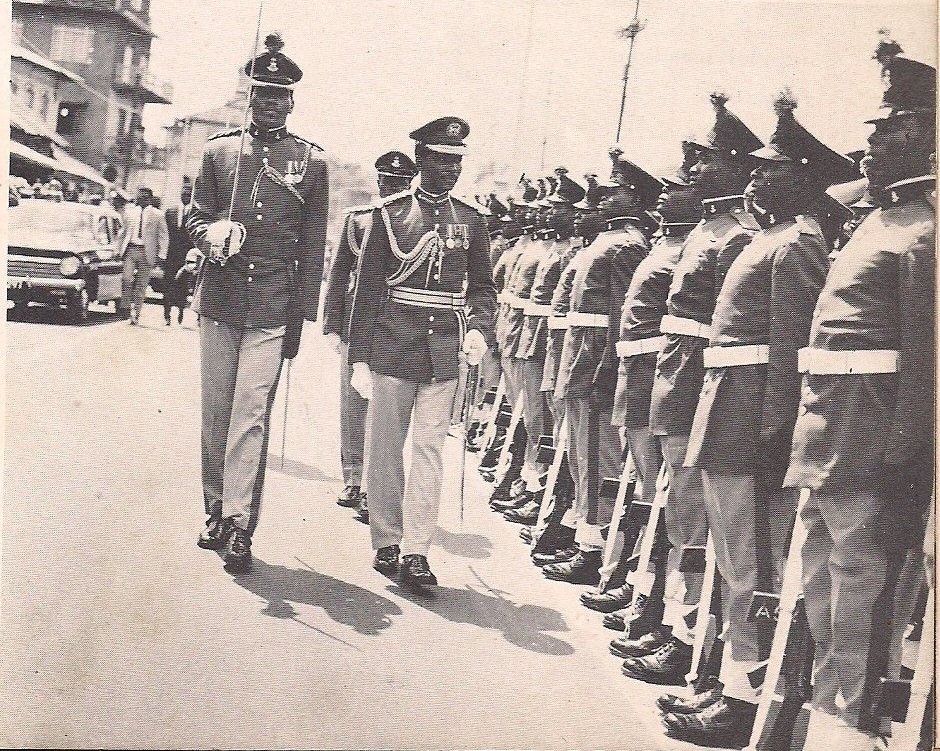In 1964, Aguiyi-Ironsi became the commander of the entire UN Force in Congo, the first African to do so. In 1965, he became a Major-General and Head of the Nigerian army. The first Nigerian to ever attain the rank and the post. #HistoryVille
Full story: buff.ly/2GoPWiP
Full story: buff.ly/2GoPWiP

Aguiyi-Ironsi attended school in Umuahia, Calabar, and Kano. In addition to English and Igbo, he could also speak Hausa and Yoruba. He enlisted into the then colonial army at the age of 18 and rose to the rank of a company sergeant-major by 1946.
On January 16, 1966, Major-General Johnson Aguiyi-Ironsi became Nigeria’s First Military Head of State after a military coup d’état had toppled the First Republic a day before.
Of all military Heads of State, Ironsi ruled Nigeria the shortest, a mere 194 days before he was overthrown and killed by his subordinates on July 29, 1966. #HistoryVille
buff.ly/2GoPWiP
buff.ly/2GoPWiP
• • •
Missing some Tweet in this thread? You can try to
force a refresh










